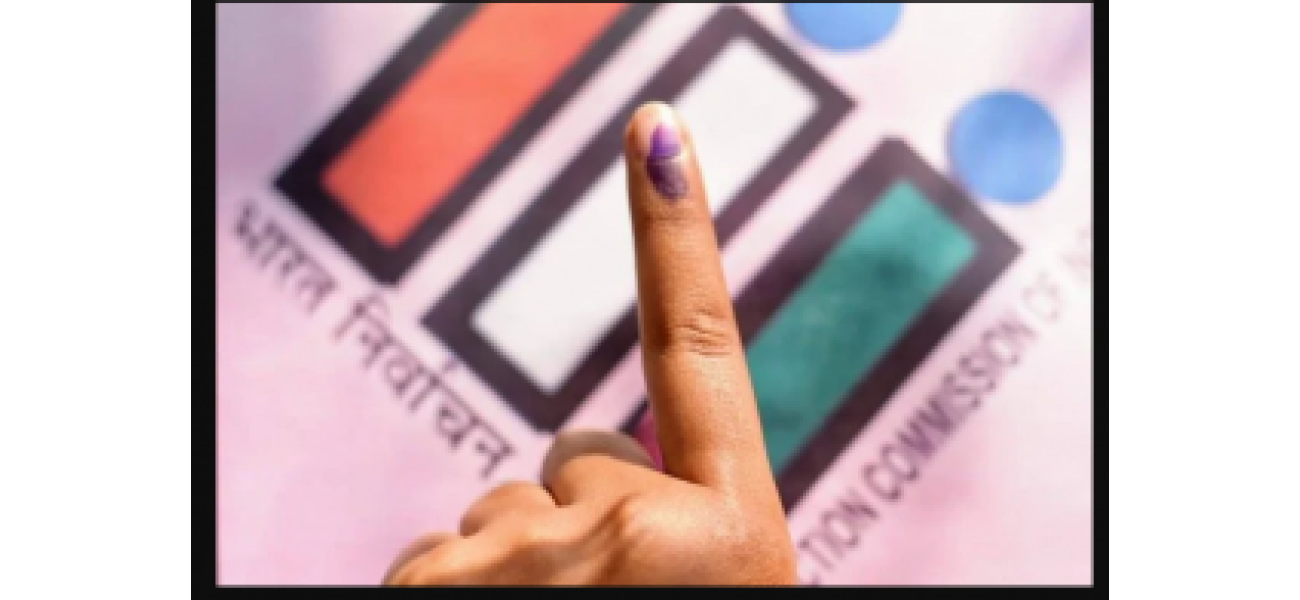Evidence needed to cast a ballot.
The Election Commission of India launched an intensive review of electoral rolls in Bihar, months before Assembly polls, a move criticized for undermining democracy and universal adult franchise.
June 30th 2025.

Ahead of the Assembly polls in Bihar, the Election Commission of India made a major announcement on June 28th. They revealed their plans for a "special intensive revision" of electoral rolls in the state. Some critics are concerned that this move goes against the core principles of democracy, specifically the universal adult franchise that is guaranteed in India. This revision process requires almost 2.93 crore voters to provide proof of their birth and parental origins. Many have likened this to a secret implementation of the National Register of Citizens, causing opposition parties to warn of potential mass disenfranchisement.
Bihar has a total of 7.89 crore voters, with 4.96 crore already being on the electoral rolls since 2003. For these voters, the process is fairly simple - they just need to confirm their names and fill out a form. However, for the remaining 2.93 crore individuals, the process is much more complicated. They are required to provide valid proof of their birth details and their parents' details, including their place of origin. This puts a heavy burden on the individual voter, a significant deviation from past practices. By placing the responsibility of eligibility on the voter without providing access to necessary documents or support, this essential right is transformed into a daunting obstacle.
This revision process requires voters born before July 1st, 1987 to provide documents verifying their birthdate and place of birth. Those born between July 1st, 1987 and December 2nd, 2004 must provide similar documentation, along with proof of identity for one parent. And for those born after December 2nd, 2004, documentation for both parents is necessary. In a country where official records can be difficult to obtain, especially for those in rural, low-income, and migrant communities, these requirements could result in many losing their right to vote.
The Election Commission has stated that this exercise is a Constitutional obligation. They are conducting this intensive review to eliminate foreign illegal migrants by verifying their place of birth and ensuring that only Indian nationals are included. This move will eventually be extended to other states such as Assam, Kerala, Puducherry, Tamil Nadu, and West Bengal, where elections are scheduled for 2026. This is particularly important in light of recent actions by various states to crack down on illegal foreign migrants, particularly those from Bangladesh and Myanmar.
Opposition parties have accused the ruling BJP and the Election Commission of trying to manipulate election results under the guise of administrative efficiency. They have strongly condemned this initiative, stating that it resembles tactics used by the Nazis to trace ancestry and infringe on people's democratic rights. The Congress party has raised concerns about the potential exclusion of Muslim and Dalit communities from the voter list through the misuse of government resources.
It is important for the Election Commission to address these concerns and maintain transparency in this process. If they fail to do so, it could result in erosion of people's trust in this Constitutional body, which would be detrimental to India's democracy.
Bihar has a total of 7.89 crore voters, with 4.96 crore already being on the electoral rolls since 2003. For these voters, the process is fairly simple - they just need to confirm their names and fill out a form. However, for the remaining 2.93 crore individuals, the process is much more complicated. They are required to provide valid proof of their birth details and their parents' details, including their place of origin. This puts a heavy burden on the individual voter, a significant deviation from past practices. By placing the responsibility of eligibility on the voter without providing access to necessary documents or support, this essential right is transformed into a daunting obstacle.
This revision process requires voters born before July 1st, 1987 to provide documents verifying their birthdate and place of birth. Those born between July 1st, 1987 and December 2nd, 2004 must provide similar documentation, along with proof of identity for one parent. And for those born after December 2nd, 2004, documentation for both parents is necessary. In a country where official records can be difficult to obtain, especially for those in rural, low-income, and migrant communities, these requirements could result in many losing their right to vote.
The Election Commission has stated that this exercise is a Constitutional obligation. They are conducting this intensive review to eliminate foreign illegal migrants by verifying their place of birth and ensuring that only Indian nationals are included. This move will eventually be extended to other states such as Assam, Kerala, Puducherry, Tamil Nadu, and West Bengal, where elections are scheduled for 2026. This is particularly important in light of recent actions by various states to crack down on illegal foreign migrants, particularly those from Bangladesh and Myanmar.
Opposition parties have accused the ruling BJP and the Election Commission of trying to manipulate election results under the guise of administrative efficiency. They have strongly condemned this initiative, stating that it resembles tactics used by the Nazis to trace ancestry and infringe on people's democratic rights. The Congress party has raised concerns about the potential exclusion of Muslim and Dalit communities from the voter list through the misuse of government resources.
It is important for the Election Commission to address these concerns and maintain transparency in this process. If they fail to do so, it could result in erosion of people's trust in this Constitutional body, which would be detrimental to India's democracy.
[This article has been trending online recently and has been generated with AI. Your feed is customized.]
[Generative AI is experimental.]
0
0
Submit Comment





